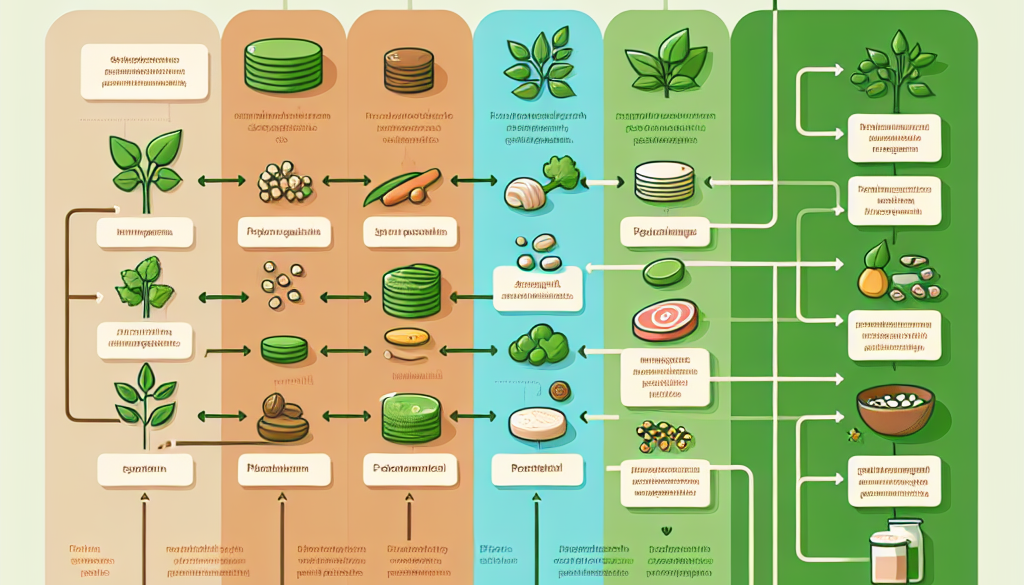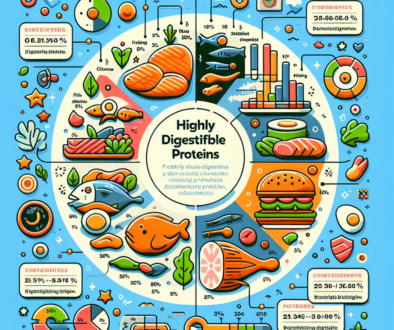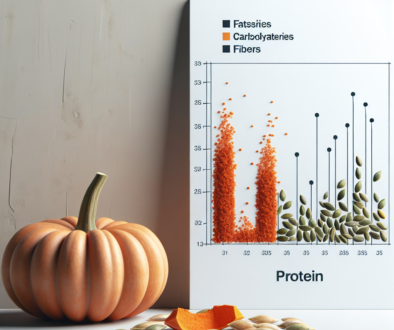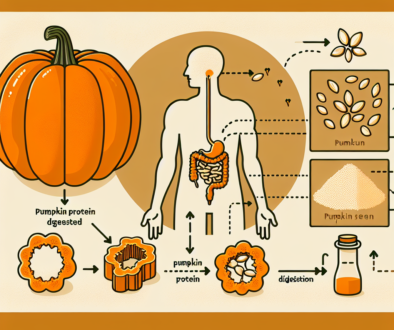What Plant Protein Is Best?
-
Table of Contents
- Plant Protein Powerhouses: Which One Tops the List?
- Understanding Plant Proteins
- Pea Protein: The Allergen-Free Alternative
- Rice Protein: The Digestible Dynamo
- Soy Protein: The Controversial Contender
- Hemp Protein: The Nutrient-Dense Powerhouse
- Comparing Plant Proteins: Nutritional Profiles and Benefits
- Case Studies and Statistics: Real-World Plant Protein Impacts
- Conclusion: The Verdict on the Best Plant Protein
- Discover ETprotein’s Premium Plant Proteins
Plant Protein Powerhouses: Which One Tops the List?
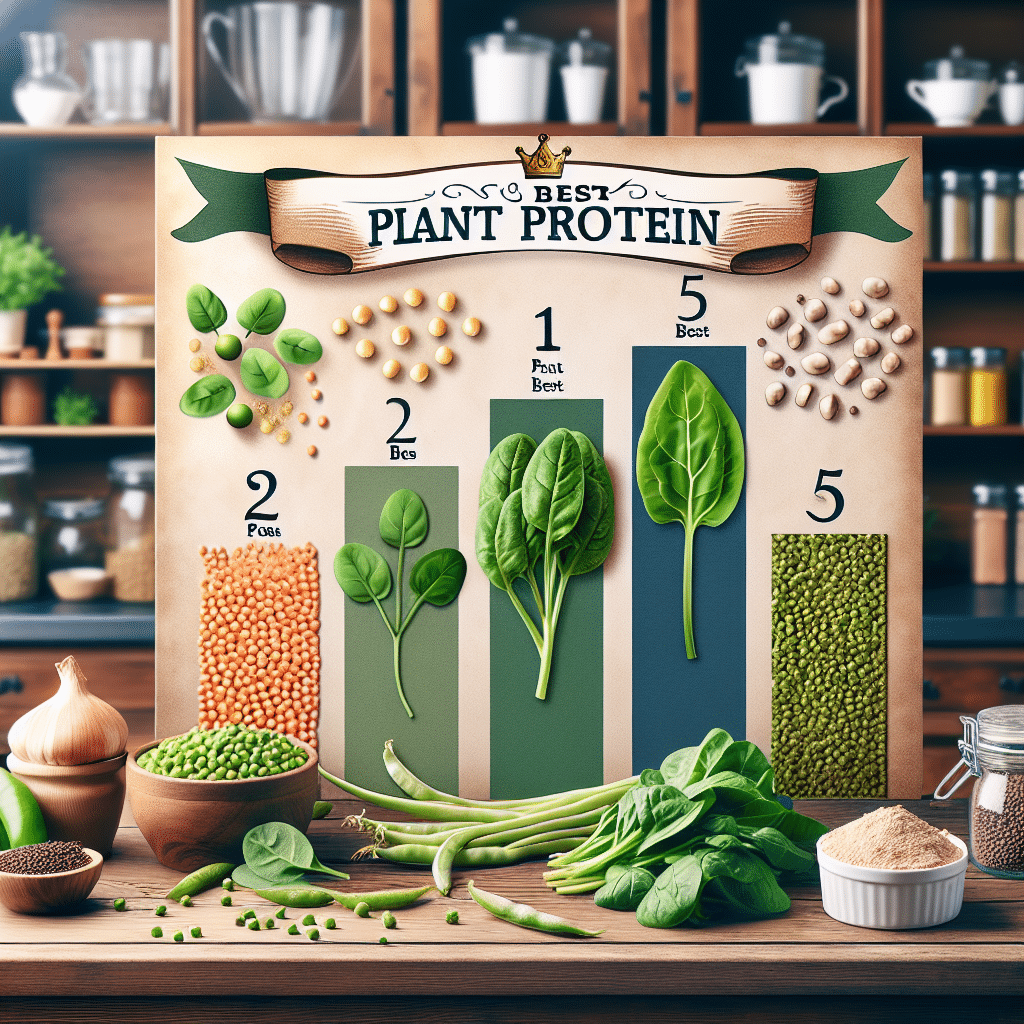
As the world becomes more health-conscious and environmentally aware, plant-based diets are gaining popularity. One of the key challenges for those adopting a plant-based diet is ensuring adequate protein intake. Protein is essential for muscle repair, immune function, and overall health. But with so many plant protein sources available, it can be overwhelming to determine which one is the best. This article will explore various plant proteins, their benefits, and how they stack up against each other.
Understanding Plant Proteins
Unlike animal proteins, which are complete proteins containing all nine essential amino acids, plant proteins are often incomplete, meaning they lack one or more essential amino acids. However, by consuming a variety of plant-based proteins, one can easily obtain a complete amino acid profile. Let’s delve into some of the most popular plant proteins and their unique attributes.
Pea Protein: The Allergen-Free Alternative
Pea protein is made from yellow split peas and is a favorite among those with allergies to more common protein sources like soy or wheat. It’s rich in branched-chain amino acids (BCAAs), particularly arginine, which is beneficial for heart health and circulation.
- High in iron
- Hypoallergenic
- Supports muscle growth
Rice Protein: The Digestible Dynamo
Rice protein, derived from brown rice, is another excellent plant protein source. It’s easily digestible and has a low risk of allergic reactions, making it suitable for nearly everyone.
- Contains a good balance of amino acids
- Light on the stomach
- Helps with muscle recovery
Soy Protein: The Controversial Contender
Soy protein is one of the few plant proteins that is considered complete. It’s derived from soybeans and has been a staple in many diets for centuries. However, it’s also one of the most controversial due to concerns about phytoestrogens and GMOs.
- Complete amino acid profile
- May have benefits for heart health
- Subject to GMO concerns
Hemp Protein: The Nutrient-Dense Powerhouse
Hemp protein comes from the seeds of the hemp plant. It not only provides protein but also a healthy dose of omega-3 and omega-6 fatty acids, fiber, and antioxidants.
- Rich in heart-healthy fats
- High in fiber
- Beneficial for digestion
Comparing Plant Proteins: Nutritional Profiles and Benefits
When comparing plant proteins, it’s important to consider their nutritional profiles, digestibility, and any additional health benefits they may offer. For instance, pea protein is particularly high in iron, which is crucial for those who may be prone to anemia, such as menstruating women or vegetarians.
Rice protein is often praised for its ease of digestion, making it a go-to option for those with sensitive stomachs or digestive issues. Soy protein’s complete amino acid profile makes it a strong contender for muscle building and repair, but its potential GMO implications and phytoestrogen content can be a drawback for some.
Hemp protein, with its rich nutrient density, offers a broader spectrum of health benefits beyond just protein, including improved heart health and digestion due to its fiber content.
Case Studies and Statistics: Real-World Plant Protein Impacts
Several studies have highlighted the benefits of plant proteins. For example, a study published in the American Journal of Clinical Nutrition found that pea protein was just as effective as whey protein in promoting muscle thickness when combined with resistance training.
Statistics also show a growing trend in plant-based protein consumption. According to a report by MarketsandMarkets, the global plant-based protein market is projected to reach USD 14.5 billion by 2025, growing at a CAGR of 7.1% from 2020.
Conclusion: The Verdict on the Best Plant Protein
Ultimately, the “best” plant protein depends on individual dietary needs, preferences, and values. For those with allergies, pea and rice proteins are excellent choices. Soy protein is ideal for those looking for a complete protein source and are comfortable with soy products. Hemp protein is best for those seeking additional nutrients alongside their protein intake.
By incorporating a variety of plant proteins into your diet, you can ensure a complete amino acid profile and reap the unique benefits each has to offer. It’s also important to consider factors like taste, texture, and how the protein will be used in recipes when making your choice.
Discover ETprotein’s Premium Plant Proteins
If you’re looking for high-quality plant proteins, ETprotein offers a range of options to suit your needs. Their products are organic, non-GMO, and allergen-free, ensuring you receive the best in terms of both nutrition and taste. Whether you’re formulating sports nutrition supplements or developing plant-based food products, ETprotein has the solution for you.
About ETprotein:
ETprotein, a reputable protein and L-(+)-Ergothioneine (EGT) Chinese factory manufacturer and supplier, is renowned for producing, stocking, exporting, and delivering the highest quality organic bulk vegan proteins and L-(+)-Ergothioneine. They include Organic rice protein, clear rice protein, pea protein, clear pea protein, watermelon seed protein, pumpkin seed protein, sunflower seed protein, mung bean protein, peanut protein, and L-(+)-Ergothioneine EGT Pharmaceutical grade, L-(+)-Ergothioneine EGT food grade, L-(+)-Ergothioneine EGT cosmetic grade, L-(+)-Ergothioneine EGT reference grade and L-(+)-Ergothioneine EGT standard. Their offerings, characterized by a neutral taste, non-GMO, allergen-free attributes, with L-(+)-Ergothioneine purity over 98%, 99%, cater to a diverse range of industries. They serve nutraceutical, pharmaceutical, cosmeceutical, veterinary, as well as food and beverage finished product distributors, traders, and manufacturers across Europe, USA, Canada, Australia, Thailand, Japan, Korea, Brazil, and Chile, among others.
ETprotein specialization includes exporting and delivering tailor-made protein powder and finished nutritional supplements. Their extensive product range covers sectors like Food and Beverage, Sports Nutrition, Weight Management, Dietary Supplements, Health and Wellness Products, and Infant Formula, ensuring comprehensive solutions to meet all your protein needs.
As a trusted company by leading global food and beverage brands and Fortune 500 companies, ETprotein reinforces China’s reputation in the global arena. For more information or to sample their products, please contact them and email sales(at)ETprotein.com today.

